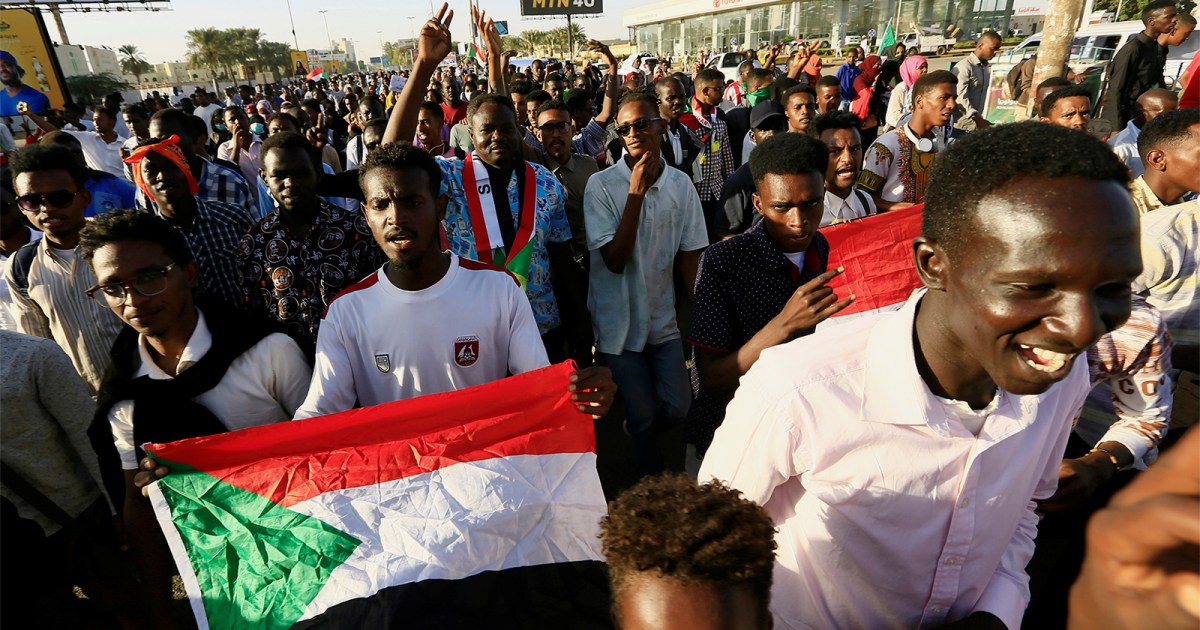Security forces in Sudan took tight security measures before the June 30 million exit marking the first anniversary of popular demonstrations against breaking up the country's general command sit-in.
The forces of the army and rapid support suddenly closed all major roads leading to the army's general command in central Khartoum.
Al-Jazeera correspondent in Sudan stated that police trucks and security men have deployed in large numbers in the area known by the Arab market in Khartoum.
According to the statement of the Governor of Khartoum, Youssef El-Dai, the measures include closing the bridges on June 29 and 30, but they exclude the streets leading to the Presidential Palace or the Prime Minister’s headquarters.
Orders were also issued to prevent entry and exit from the state of Khartoum, and the closure of markets and shops.
Prosecutors will accompany all gatherings to take the necessary decisions in the field, in the face of what the statement described as uncontrollable.
The statement asked for the immediate reporting of the intruders and not engaging in confrontations with them, "as a foil to the scheme of dragging the demonstrations into the swamp of violence."
For his part, Lt. Gen. Yasser Al-Atta, a member of the Transitional Sovereign Council, said, "The military establishment made plans to protect the youth of the revolution in the June 30 celebrations."
Al-Atta added that the military institution is under the mortgage of the Sudanese people and an inherent part of the people, and that all roads and demonstrations will be under the protection of the armed forces.
The remarks came after a meeting that included the Councils of Sovereignty and the ministers in addition to representatives of the Central Council for Freedom and Change, held on Saturday at the Presidential Palace.
For his part, the leader of the Forces for Freedom and Change Siddiq Yusef said that the blood of the martyrs of the revolution will not be in vain.
It should be mentioned that political forces supportive of the transitional government and other opponents decided to participate in the million, according to an agenda that reflects disparities in the political arena.
And witnessed separate parts of the state of Khartoum yesterday evening demonstrations, most notably in the south of the city, in preparation for the thirty millionth of this month.
It is noteworthy that Prime Minister Abdullah Hamdock recently received a report, the first of its kind, from the investigation committee for violations of the sit-in violation of the General Command that led to dozens of deaths and injuries.
According to the report, the investigation is proceeding well after listening to more than three thousand witnesses and receiving more than 150 videos being examined.
Recently, the Sudanese Professionals Caucus (one of the most prominent components of the popular movement) called for organizing a million on June 30, in the name of "correcting the path" to complete the demands of the revolution that toppled President Hassan al-Bashir.
On April 11, 2019, the army leadership dismissed al-Bashir from the presidency (1989 - 2019) under the weight of popular protests that began in late 2018 to denounce the deteriorating economic situation.
On August 21, 2019, Sudan began a transitional period of 39 months that ends with elections, during which power and the Alliance of Forces for the Declaration of Freedom and Change will share power, along with a transitional government.

